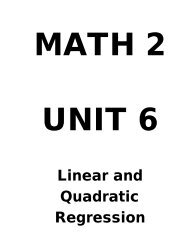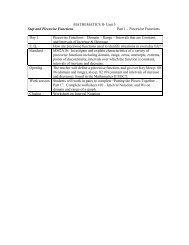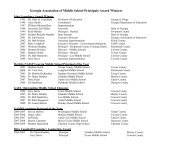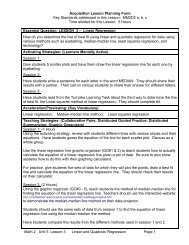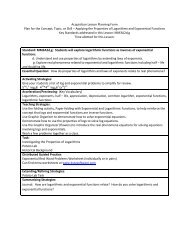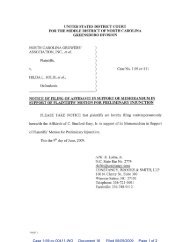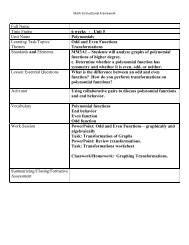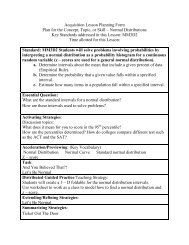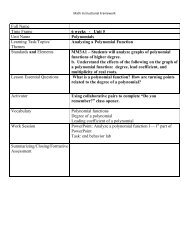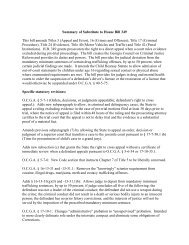State Action Plan Goals & Objectives - Ciclt.net
State Action Plan Goals & Objectives - Ciclt.net
State Action Plan Goals & Objectives - Ciclt.net
Create successful ePaper yourself
Turn your PDF publications into a flip-book with our unique Google optimized e-Paper software.
Office of Addictive Diseases<br />
Division of Mental Health, Developmental Diseases, and Addictive Diseases<br />
Georgia Department of Human Resources<br />
Agency/Program Information<br />
Mailing Address: 2 Peachtree Street NW<br />
Street Address: 2 Peachtree Street NW<br />
City/<strong>State</strong>/Zip: Atlanta, GA 30303 City/<strong>State</strong>/Zip: Atlanta, GA 30303<br />
Web: http://mhddad.dhr.georgia.gov/portal/site/DHR-MHDDAD/<br />
To receive information on services or referrals please contact:<br />
Phone: (800) 715-4225<br />
Email:<br />
Agency/program description: The Office of Addictive Diseases offers a range of treatment and support services to promote integration into the community and recovery for<br />
people with serious substance abuse issues.<br />
Eligibility criteria: A person must be diagnosed with an approved diagnostic category for state-funded services for addictive diseases.<br />
Eligible age groups: all ages<br />
Services offered: The Office of Addictive Diseases provides services through core providers and specialty providers, depending upon the needs of the person. Services vary by<br />
region but may include: crisis services, outpatient services, community support services, day and employment services, residential support and regional hospitals. The services a<br />
person receives depends on a professional determination of a level of need as well as the availability of services and other community supports.<br />
Funding or financial assistance offered: Services are offered on a sliding scale, although services are free for people who meet Federal Poverty Level criteria. Services are<br />
reimbursed by Medicaid for people who are Medicaid-eligible.<br />
Services for People with Brain Injury (BI): Traumatic (TBI)* and Acquired (ABI)*<br />
People with brain injury eligible for services (note if there is a distinction between TBI and ABI): yes, if they have a diagnosis of addictive disease<br />
Agency definition of brain injury (note if there is a distinction between TBI and ABI): "Traumatic brain injury" means a traumatic insult to the brain and its related parts<br />
resulting in organic damage thereto which may cause physical, intellectual, emotional, social, or vocational changes in a person. It shall also be recognized that a person having a<br />
traumatic brain injury may have organic damage or physical or social disorders, but for the purposes of this chapter, traumatic brain injury shall not be considered mental illness as<br />
defined in paragraph (11) of this Code section. (OCGA 37-3-1). There is no definition for ABI.<br />
Time period following injury that people referred to program: varies<br />
Source of referrals to program: anyone<br />
Specialized services for people with TBI or ABI: none<br />
Case management offered for people with TBI or ABI: case management is provided on a case-by-case basis<br />
Agency personnel receive training on TBI or ABI No<br />
Services for People with Spinal Cord Injury (SCI)<br />
People with SCI eligible for services: yes, if they have a diagnosis of addictive disease<br />
Agency definition of SCI: none<br />
Time period following injury that people referred to program: varies<br />
Source of referrals to program: anyone<br />
Specialized services for people with SCI: none<br />
Case management offered for people with SCI: case management is provided on a case-by-case basis<br />
Agency personnel receive training on SCI no<br />
Program Statistics<br />
data not available



